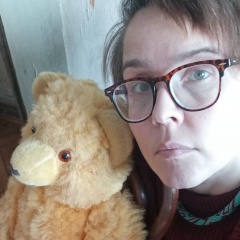Хорошо известно, что: испанец - человек, а испанка - грипп; Американец - человек, а американка - бильярд; Индеец - человек, а индейка - птица; Кореец - человек, а корейка - еда; Болгарин - человек, а болгарка - инструмент; Финн - человек, а финка - нож; Поляк - человек, а полька -танец; Турок - человек, а турка - посуда; Голландец - человек, а голландка - печка; Венгр - человек, а венгерка - слива; Ленинградец или сочинец - человек, а ленинградка или сочинка - преферанс; Чехи и вьетнамцы - люди, а чешки и вьетнамки - обувь; Китаец - человек, а китайка - яблоко; Молдаванин - человек, а молдаванка - район Одессы. И только одно исключение: москвичка - человек, а москвич - ведро с гайками
It is well known that: the Spaniard is a man, and the Spaniard is the flu; The American is a man, and the American is a billiard; The Indian is a man, and the turkey is a bird; Korean is a man, and brisket is food; Bulgarian is a man, and the Bulgarian is a tool; Finn is a man, and Finn is a knife; A Pole is a man, and a Polish woman is a dancer; A Turk is a man, and a Turk is a dish; The Dutchman is a man, and the Dutchman is a stove; Hungarian is a man, and Hungarian is a plum; Leningradets or Sochiats is a man, and Leningrad or a sochinka is a preference; Czechs and Vietnamese are people, and Czechs and Vietnamese are shoes; A Chinese man is a man, and a Chinese man is an apple; A Moldovan is a man, and a Moldavian is a district of Odessa. And only one exception: Muscovite - a man, and Muscovite - a bucket with nuts
У записи 21 лайков,
3 репостов.
3 репостов.
Эту запись оставил(а) на своей стене Нино Микелтадзе







































